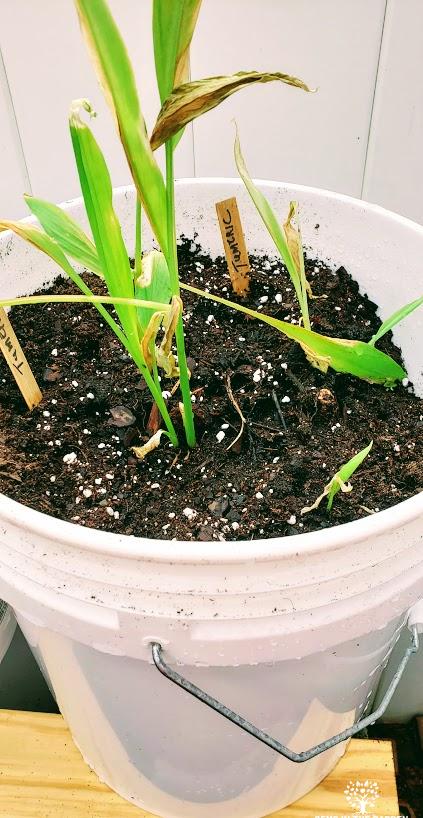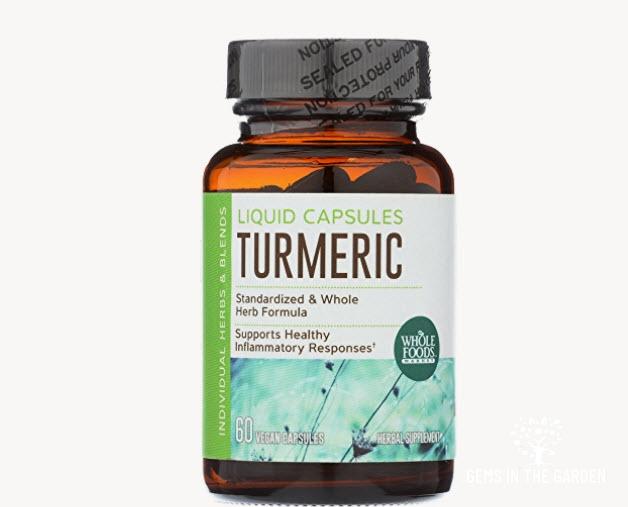Say hello to Nature’s Pharmacy.

Pollen is everywhere. You can’t seem to escape it if you are a spring allergy sufferer like me. In that case, you are familiar with sneezing, runny nose, congestion, tight throat, and itchy eyes. These symptoms are associated with hay fever or allergic rhinitis and are triggered by pollens in trees, grass, and weeds.
“Hay fever is an allergy that involves inflammation in the lining of your nose.”
n some areas, the trees, and flowers have already released pollen into the air, and your body is trying to fight it. Preparation is crucial in dealing with the culprit. Start early with your regime of remedies to build your immunity and enjoy the outdoors.
Of course, there are many options to help you with allergy relief. You can purchase over-the-counter medicines, which can be pricey and have side effects, or opt for the natural way.
So what herbs are readily available to help you get through the season?
Below are four medicinal plants I grow in my container garden:
#1 Rosemary
The research shows that rosemary effectively treats allergies because it contains rosmarinic acid, which has anti-inflammatory and antioxidant properties. In order words, the acid plays a vital role in the suppression of inflammation of the white blood cells. As spring approaches, I have ramped up my intake of rosemary tea. I harvest fresh leaves in the backyard and make a warm cup of tea daily. You can add some dried rosemary to your foods or brew a cup of tea as I do. Rosemary is a great natural option for over-the-counter medicines.

#2 Garlic
Did you know that garlic can help you combat spring allergies? Yes, garlic is not only good for cooking. It can improve your allergy symptoms as well.
Garlic contains quercetin which is an antioxidant that blocks the release of histamine. Your histamine levels explode because your body is fighting the pollen. A research study concluded that quercetin is a natural antihistamine.
Now is an excellent time to increase the amount of garlic in your cooking. Be prepared early this season. Without a doubt, you must include garlic in your list of natural allergy fighters.

#3 Tumeric
Tumeric is a spice with powerful properties for helping allergy sufferers. Tumeric belongs to the ginger family of plants and is mainly associated with Indian cooking and other ethnic cuisines, and is a main ingredient in curry powder. In the Caribbean, curry powder is used to prepare delicious dishes like curried chicken roti.
Tumeric contains curcumin which helps reduce allergy symptoms. According to American College of Allergy, Asthma & Immunology journal research, curcumin helped participants with sneezing and congestion.
Add turmeric to your arsenal of natural home remedies. You can buy fresh turmeric, purchase powder, or supplement.
I am using store-bought turmeric powder in my regiment practice. The rhizomes in my turmeric plant are showing life again. Below are photos of my turmeric plant:

#4: Stinging Nettle
Stinging nettle may be a powerhouse for reducing symptoms of seasonal allergies. It has been used in traditional medicine for ages. The plant contains exceptional anti-inflammatory properties. The research revealed that the extracts from stinging nettle could suppress the inflammation that sets off seasonal spring allergies.
Build up your natural home pharmacy with stinging nettle. You can purchase stinging nettle supplements, leaves, capsules, teas, or juice. Be careful if you intend to buy a live plant. There are tiny hairs beneath the leave and stems, which has chemicals that will make your hand scratch. Wearing a glove is highly recommended.
I also lost my stinging nettle plant over the winter. Below is a photo of nettle supplements I am using from Whole Foods.

Final thoughts
You can spice up your meals with turmeric and ginger, brew rosemary tea, or purchase nettle capsules. Start building up your immunity to pollen using nature’s pharmacy.
I hope today’s post showed you it’s possible to deal with allergies naturally.
Now it’s your turn.
Which of the four herbs from today’s post will you try first?
Are you going to try some nettle supplements or grow turmeric?
Either way, let me know by leaving a comment below right now.
Precaution
Medicinal plants and herbs have been used since ancient times. They help the body get strong and treat ailments. However, herbs have side effects and may interfere with your medications and supplements. Please be careful when taking herbs and seek advice from your health provider.

![Look What’s Blooming in My Garden This Spring [2023]](https://gemsinthegarden.com/wp-content/uploads/2023/04/Red-Azalea-scaled.jpg)